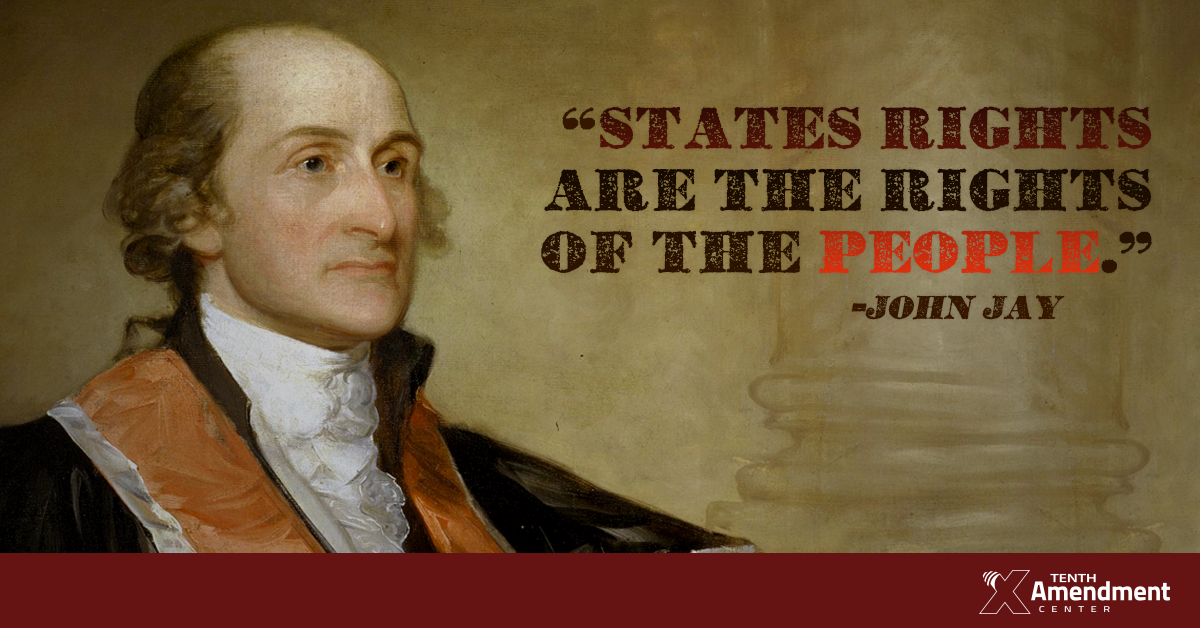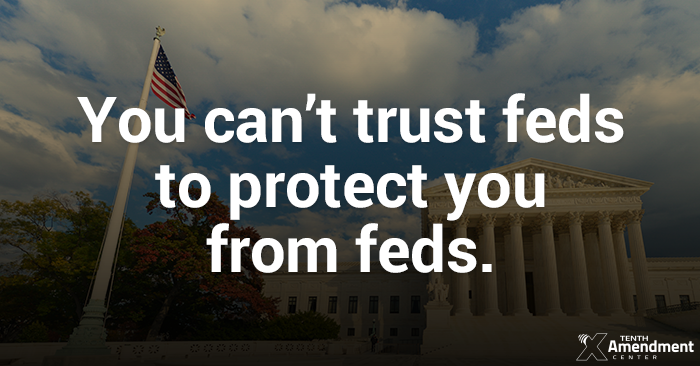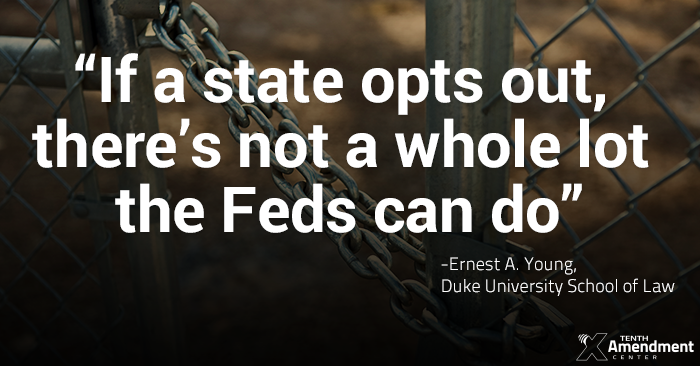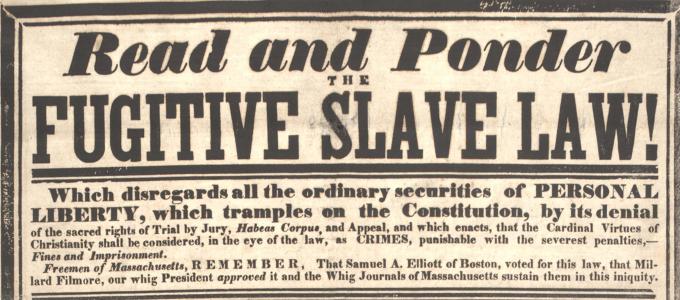
Federalism


Leave it to the States!
“States rights are the rights of the people” – John Jay The founding generation valued political decentralization and created a federal government meant to exercise very few powers. Clearly, that is not the system we have today. In a powerful new book, legal...
If the Feds Rule the States, Who Rules the Feds?
Every once in a while, the Supreme Court delivers up an opinion conservatives or libertarians like. For instance, conservatives always cheer when federal courts strike down state gun laws. And just last week, libertarians rejoiced when the Supreme Court ruled every...
Uncooperative Federalism: State Resistance and Noncompliance is Essential
Is the idea of federalism dead? Does the concept have no relevance in the modern world? Not according to Ernest Young, who addressed the topic in an essay titled “Federalism as a Constitutional Principle.” The essay was given as the William Howard Taft Lecture on...
Centralization, Community and Liberty
Does the Constitution matter today? Some people, especially those in the establishment, find it fashionable to mock those of us who say it does. It’s an outdated document, they say, whose outmoded ideas are irrelevant in the twenty-first century. Those silly,...
